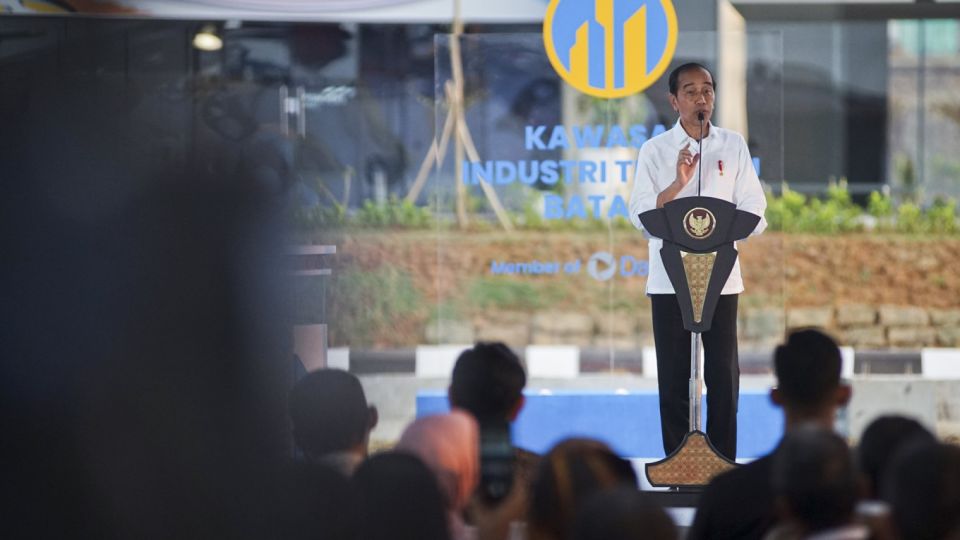July 29, 2024
JAKARTA – Coordinating Maritime Affairs and Investment Minister Luhut Pandjaitan says the government has decided to designate the Batang Integrated Industrial Zone (KITB) as a special economic zone (SEZ).
That status means the KITB is set to benefit from certain incentives reserved for SEZs. “Thus, we will provide the same incentives, tax holidays and various other benefits as those given to other SEZs,” he said on Friday at the inauguration ceremony for the new industrial area, as reported by Kumparan.
The industrial zone in Central Java is expected to create at least 250,000 jobs in the area and attract trillions of rupiah in investment.
President Joko “Jokowi” Widodo, who headlined the opening event, praised the KITB as an opportunity to attract overseas investors to build factories in Indonesia, noting that the country’s rank in a global competitiveness index had improved to 27th position.
The Institute for Management Development’s (IMD) World Competitiveness Ranking (WCR) 2024 published last month ranked Indonesia 27th out of 67 countries assessed, marking an improvement from the 34th place the archipelago achieved in 2023. In Southeast Asia, only Singapore and Thailand ranked higher than Indonesia.
The President said several factors had contributed to the improved ranking, including the country’s economic and political stability and a relatively low level of inflation.
“This is our strength, and I’m pleased that, with my decision to have an industrial zone located in Batang with an area of 400 hectares, which is fully occupied, we have now opened another 400 ha on the northern side of the toll road. The total planned area is 4,300 ha, which will eventually accommodate [more] industries,” Jokowi said.
However, the President cautioned that, unless the opportunities were seized wisely, the area would not benefit the country.
“I see that there is a lot of interest for industries to relocate their factories to countries that have stable economic growth, low inflation and a [high degree of] political stability, and that’s how a lot of investors view Indonesia. However, if we fail to make the right decisions, those opportunities will surely disappear,” the President warned.
Investment Minister Bahlil Lahadalia, who was also present at the opening ceremony, noted that various firms had already invested in the industrial zone, with 18 businesses having invested a total of more than Rp 14 trillion to create some 19,000 jobs.
The minister said the Batang industrial area was set to serve high-technology and labor-intensive industries, with a focus on small and medium enterprises.
The Jakarta Post reported in December last year that the government was negotiating a deal worth US$600 to $800 million with South Korea’s LG Energy Solution (LGES) to build an electric vehicle (EV) battery cathode plant in Batang.
Bahlil noted that that plan was nearing fruition. “LG Group will begin building cathodes as part of the vehicle battery ecosystem in September, after completing a feasibility assessment in August, and the cathodes will be developed here [in Batang],” the investment minister said at the same opening event live-streamed on YouTube.
“So, for LG battery cells, the precursor smelter is located in North Maluku, the cathodes in Batang and the battery [production] in Karawang. That way, it is not all concentrated in Maluku, resulting in more balanced development,” he added.


